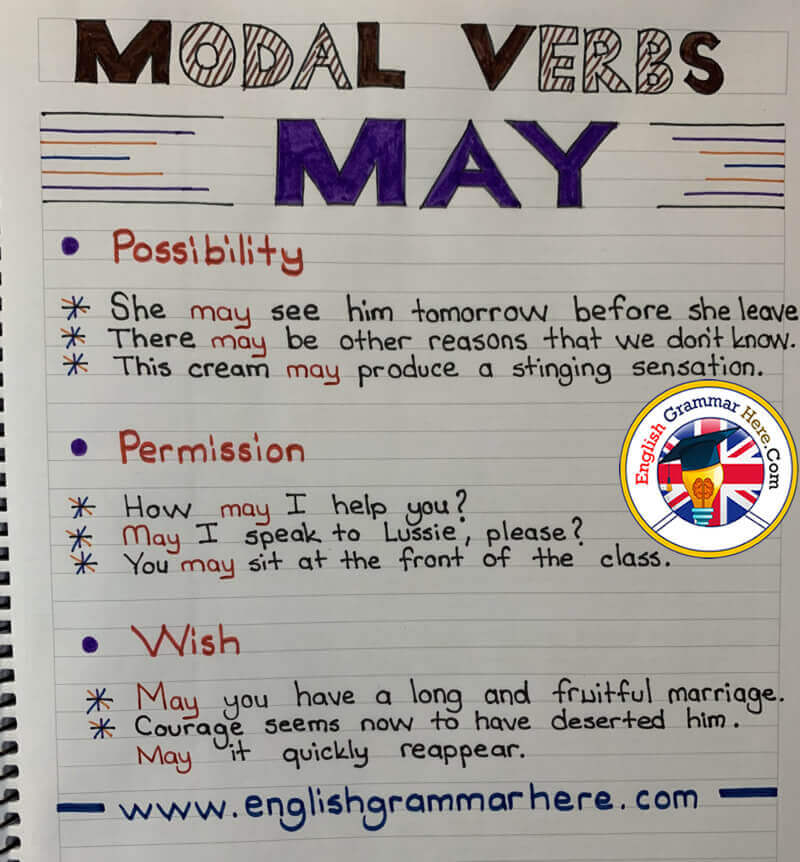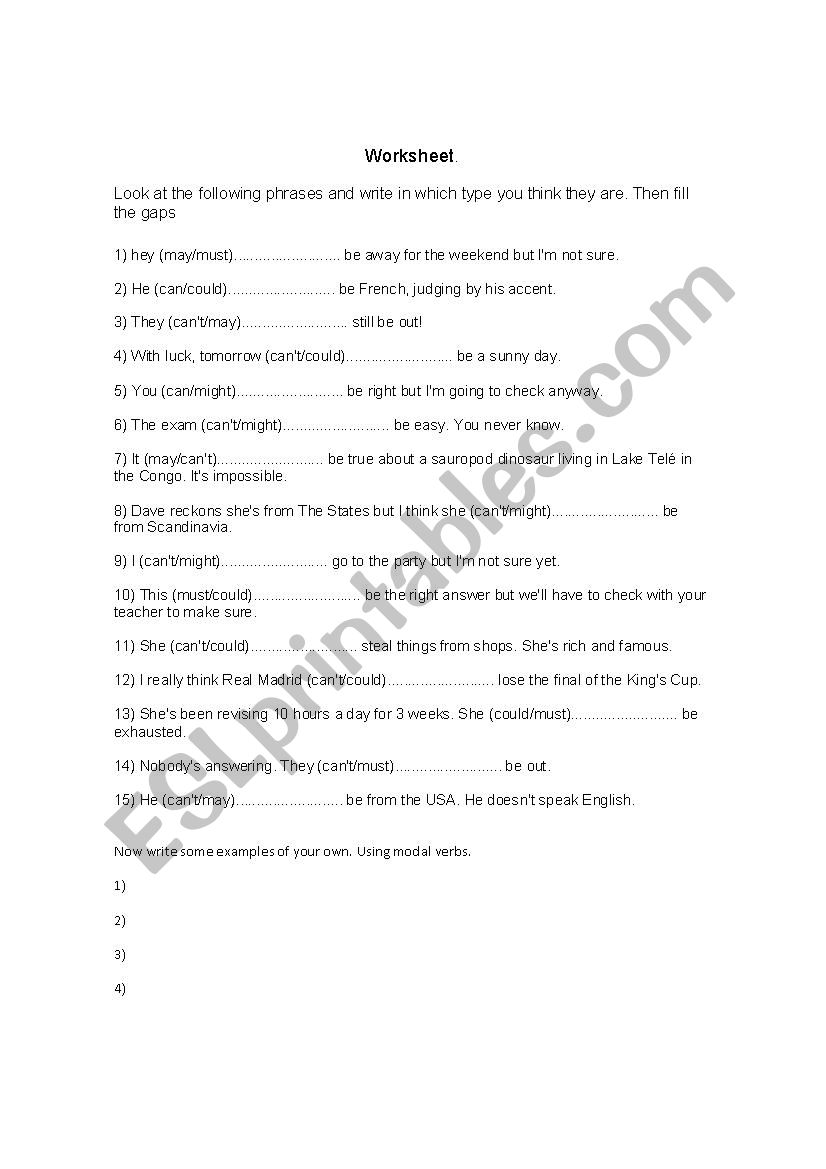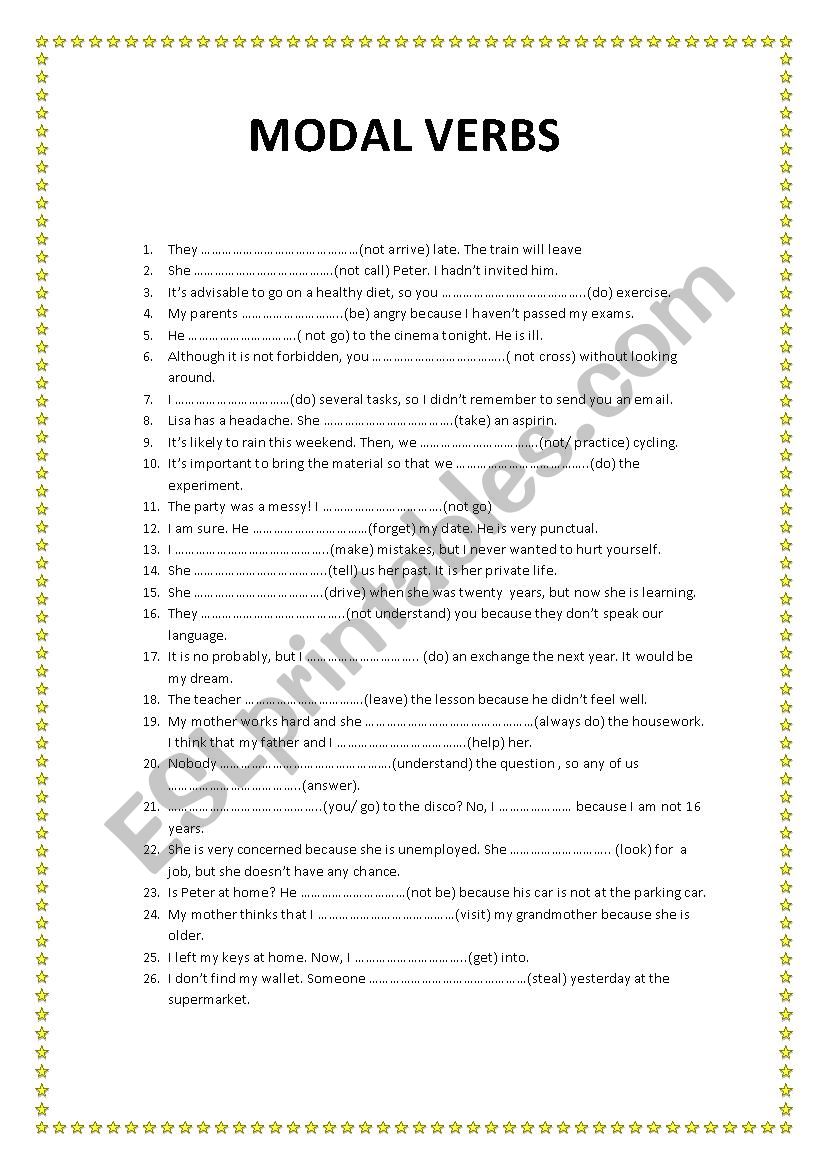



Could is more formal and polite than can. Can I make a suggestion could We also use could to ask for permission (but not to give it). Can I sit here You can use my car if you like. Permission can We often use can to ask for and give permission. We also use modal verbs to say something is not allowed. Grammar explanation We often use verbs with modal meanings to talk about permission and obligation. We can use verbs such as 'can', 'could' and 'may' to ask for and give permission. We can use verbs such as 'must' or 'should' to say when something is necessary or unnecessary, or to give advice.Ĭlick here to find out more about obligation Permission

We use 'can' and 'could' to talk about a skill or ability. £200 for two cups of coffee!Ĭlick here to find out more about probability. It's snowing, so it must be very cold outside.We often call these 'modals of deduction' or 'speculation' or 'certainty' or 'probability'. Probability:įirst, they can be used when we want to say how sure we are that something happened / is happening / will happen. Here's a list of the modal verbs in English: canġ: They don't use an 's' for the third person singular.Ģ: They make questions by inversion ('she can go' becomes 'can she go?').ģ: They are followed directly by the infinitive of another verb (without 'to'). Click here to download this explanation as a pdf.Ĭlick here for all the exercises about modal verbs


 0 kommentar(er)
0 kommentar(er)
